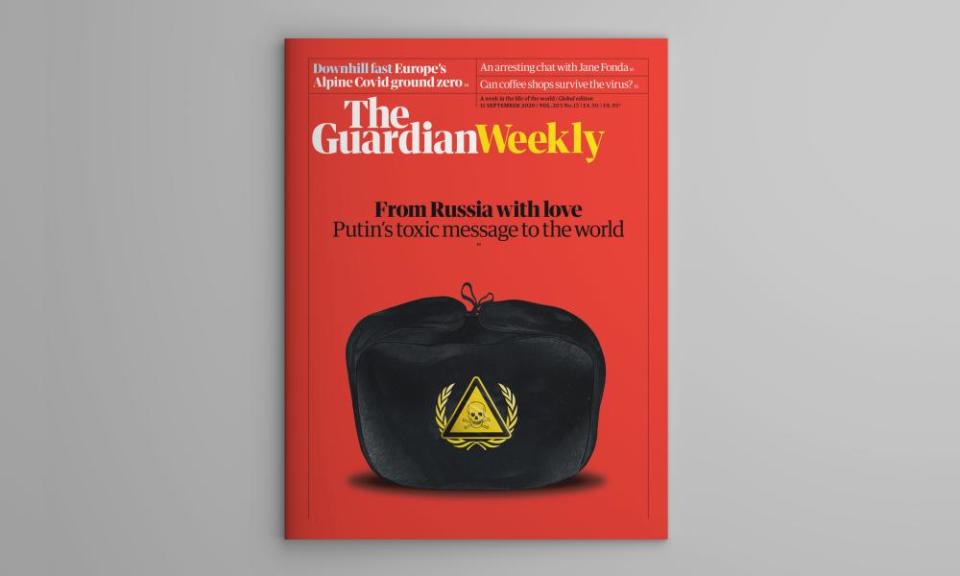From Russia with love: Putin's toxic message to the world - the 11 September Guardian Weekly

The news that Kremlin critic Alexei Navalny had likely been poisoned with novichok was shocking – but no surprise. Since the 2006 murder of Alexander Litvinenko in London and through to the poisoning of Sergei Skripal in Salisbury in 2018, the use of deadly toxins to silence critics has become a deadly hallmark of the Russian state. As Russia expert Luke Harding explains, the use of the poison on Navalny was effectively a calling card and a warning to other dissidents.
One question arising is how the west – and particularly Germany, which is close to finishing a 1,220km gas pipeline project with Russia – can or will respond? Philip Oltermann and Daniel Boffey ask how Europe might push back after this latest brazen act.
The coronavirus crisis has had one minor advantage for the UK government: it stopped people from talking about Brexit. That changed this week when it emerged that prime minister Boris Johnson appears willing to pick apart the Brexit withdrawal agreement – a move that threatens to collapse the crunch talks on a final exit deal over the next few weeks. The lack of trust in Johnson from Brussels was also revealed on Monday, in a series of leaked diplomatic cables that questioned Britain’s motivations during the negotiations. What happens next?
Elsewhere, reporters Sarah Butler and Sarah Marsh look at an industry that has become an unlikely focus of discussions about Britain’s economic future: coffee shops. With millions of office workers still working remotely, chains that dominate British high streets such as Costa and Pret a Manger are finding their entire business models under threat, while small, out-of-town independents are adapting better. What does this realignment tell us about the post-Covid world?

 Yahoo News
Yahoo News 